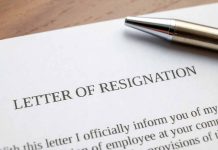
Mark Zuckerberg’s revelation about complying with White House content censorship demands has sent shockwaves through the free speech debates.
At a Glance
- Zuckerberg admitted Meta faced pressure from the Biden administration to censor pandemic content.
- Zuckerberg voiced regret over Meta’s compliance with government demands.
- The House Judiciary Committee has questioned big tech’s role in content moderation.
- Facebook removed over 20 million pieces of related content.
- Zuckerberg has committed not to support electoral infrastructure for the upcoming U.S. presidential election.
Zuckerberg’s Regret Over White House Pressure
Mark Zuckerberg, CEO of Meta, recently acknowledged the pressure exerted by the Biden administration to censor content on Facebook. Speaking candidly, Zuckerberg reflected on Meta’s decision to comply with these demands and expressed deep regret over the company’s actions. “I believe the government pressure was wrong, and I regret that we were not more outspoken about it,” stated Zuckerberg in a letter to the House Judiciary Committee.
Zuckerberg explained that the administration pressured Meta for months, pushing the company to remove certain content, including humor and satire. In response, Facebook took down over 20 million pieces of content related to the national health crisis within just over a year. This action has now sparked a debate about the role of social media companies and their responsibility in maintaining the integrity of online platforms.
House Judiciary Committee’s Investigation
The House Judiciary Committee has been investigating content moderation practices on online platforms. Zuckerberg’s admissions align with broader concerns about the collusion between big tech and government to censor speech. The committee has been pressing social media companies, including Meta, for transparency regarding their content moderation policies.
In his letter, Zuckerberg also addressed previous instances where Meta decisions were influenced by external pressures, such as the controversial demotion of a New York Post story about Hunter Biden. He noted that the story was initially thought to be Russian disinformation, but “It’s since been made clear that the reporting was not Russian disinformation, and in retrospect, we shouldn’t have demoted the story.”
Commitment to Neutrality
In light of these revelations, Zuckerberg has taken a firm stance, pledging that Meta will not contribute to electoral infrastructure for the upcoming U.S. presidential election. He stressed his goal to remain neutral and avoid influencing political outcomes, saying, “My goal is to be neutral and not play a role one way or another — or even appear to be playing a role.”
The ongoing debate highlights the ethical dilemmas faced by social media platforms tasked with balancing user expression and external pressures. Elon Musk’s recent acquisition of Twitter, aimed at promoting free speech, has only intensified the scrutiny on Zuckerberg and Meta’s content moderation policies.
Sources:
- Meta (NASDAQ:META) Regrets Facebook’s Censorship
- Mark Zuckerberg says White House ‘pressured’ Meta to ‘censor’ content
- Zuckerberg says he regrets caving to White House pressure on content
- Zuckerberg Says Biden Officials ‘Pressured’ Meta to ‘Censor’ Content
- Zuckerberg says White House pressured Meta — and he has regrets
- Mark Zuckerberg Says White House Was ‘Wrong’ to Pressure Facebook






















